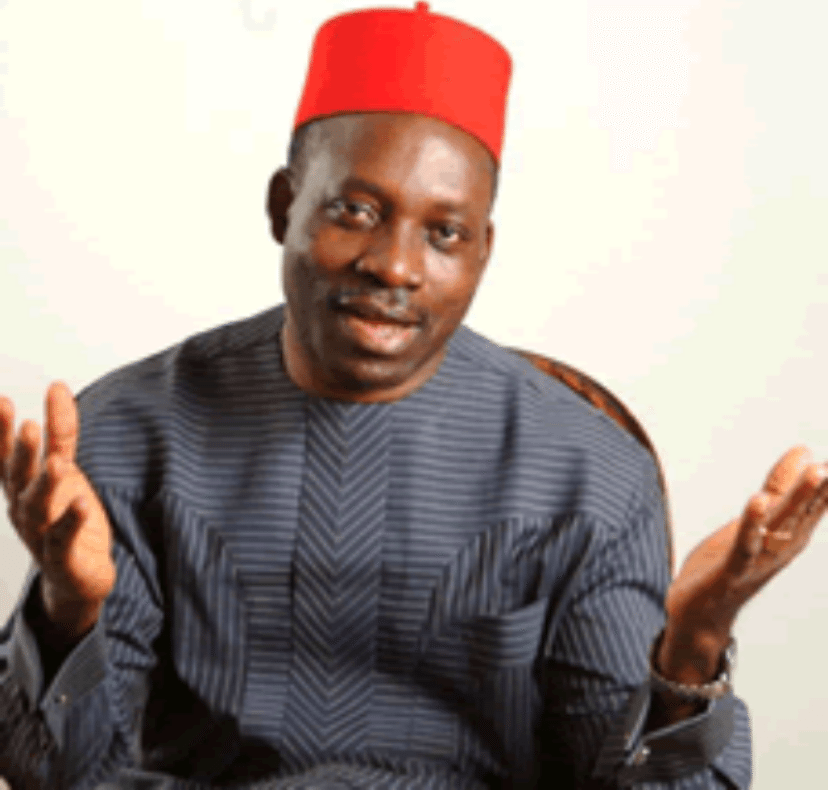A former governor of the Central Bank of Nigeria, CBN, Professor Charles Soludo, says it is important for Nigeria to be innovative.
Soludo explained that this was necessary for the country to remain relevant among the comity of nations, noting the signing of the African Continental Free Trade Agreement (AFCFTA).
“The implication (of the signing) is that insularity will no longer be an option; the name of the game of the future in an increasingly integrated world is innovate, compete or die,” Soludo said while giving a speech at The Platform, an annual programme organised by the Covenant Christian Centre, Lagos.
He noted that the world was already on the fourth industrial revolution with the digital economy while Nigeria was struggling with the basic stages of growth.
“While electric cars are fast replacing diesel and petrol cars, many of our people are still building petrol stations.
“The ordinary people who can’t explain what has hit them resort to all sorts of criminal activities to survive. Economic structuring will entail thinking through the alternative scenarios and mapping out to alternative possible proactive responses,” the former CBN boss added.
The economist, however, said it would be difficult to have a competitive and prosperous post-oil economy of the future with additional hundreds of millions of Nigerians in the coming years.
He added that Nigeria has to go beyond just paying lip service to building solid foundations for economic growth and expansion.
In his words, “Our constitution, together with its command and control institutions concentrated at Abuja, was designed for and around the sharing and consumption of the oil rent. It is largely obsolete for the demands of a production economy without oil rent which requires competitive and flexible rather than unitary federalism.
“As the oil rent is tapping off, its internal contradictions have burst open, requiring a lot of survival mechanisms to keep the system afloat. But for how long?
“You cannot build a 100-storey building upon a foundation of an old bungalow. The new economy we need to build is a 100-storey building and we cannot put a 100-storey building on this foundation that has been laid for a bungalow.
“A post-oil economy requires that agents maximize their fullest potentials which would require a national rather than a federal response. You can’t clap with one hand.
“What we need is a new national business model. You are designing good ideas and good plans without the underlying infrastructure to carry those ideas forward.”
Soludo, however, said the responsibility was not for the Federal Government alone but should be a collective effort from every citizen.
According to him, the nation needs to focus on wealth creation rather than sharing and consuming oil rent, paving the way for a new national business model.
“The link between law, constitution, institution, and judiciary and the economic transformations seems to be the weakest link in our design of national agenda,” the economist said.
Prof Soludo also advised Nigerian leaders to tap into the nation’s huge human resource and exploit it for positive results.
He said: “These children in the next 30 years will be youth, they need jobs, they need education, they need water, they need housing. Twenty years’ time, the oil will be history. I want to ask whether we are actually prepared enough to welcome the 400 million Nigerians in 30 years’ time.
“Since 1992, we have implemented all kinds of plans all designed to diversify the economy but we are still tied to the life support of the oil sector. If you want to change a persistent economic structure, you have to change the underlying economic institution.
“Our greatest resource is human beings, but we are not going to export illiterates. The easiest way to waste the future is to continue to churn out illiterates and largely unemployed persons must of whom see criminality as the only way to escape,” the economist added.
(Channesltv)

